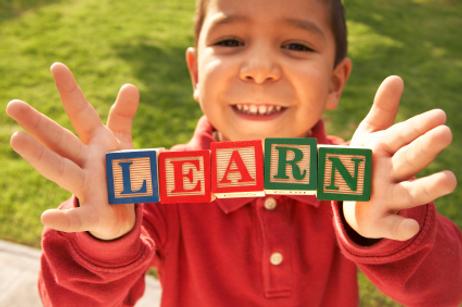"We are crew, not passengers." – Expeditionary Learning philosophy
A new wave of learning is sweeping schools across the country, engaging children in meaningful learning activities that claim to prepare them more adeptly for the world of higher education. This trend, known as expeditionary learning, has been implemented in numerous K-12 public schools today, and the results in many of these institutions have been impressive. What is expeditionary learning and how does it benefit students? The information about this unique program is spelled out within this article.
What is Expeditionary Learning?
According to the website for Pathfinder K-8 School in Seattle, expeditionary learning can be defined as "learning by doing, with a particular focus on character growth, teamwork, reflection and literacy."
Instead of sitting in a traditional classroom each day, schedules are broken into projects that engage students, challenge their thinking and teach them critical problem solving skills. Work may be done inside or outside the classroom, with a particular emphasis on Outward Bound expeditions that promote teamwork and challenge students to their physical and mental limits.
The Casco Bay High School for Expeditionary Learning lists the 10 design principles that reflect the values and beliefs of both expeditionary learning and Outward Bound:
- The Primacy of Self Discovery – Learning happens best with challenge, emotion and proper support.
- The Having of Wonderful Ideas – Time is given to foster curiosity, experiment and make observations.
- The Responsibility of Learning – Learning takes place individually and as a group.
- Empathy and Caring – Both students' and teachers' ideas are respected.
- Success and Failure – Students learn from their failures and celebrate successes.
- Collaboration and Competition – Education involves the integration of group and individual learning experiences.
- Diversity and Inclusion – Students learn about their own communities and cultures, as well as others, to increase their overall learning experience.
- The Natural World – The cultivation of a direct and respectful relationship with the natural world is important.
- Solitude and Reflection – Students and teachers are given time to explore their own observations and connect their thoughts.
- Service and Compassion – Service projects are used to teach students the strength of service to one another and their community.
When these design principles are properly incorporated into the classroom experience, students develop curiosity, skills, knowledge and courage in a safe, supportive environment. They learn to imagine a better world and how to do their part to realize it.
Does it Work?
While the philosophies may sound good in theory, the proof is in the pudding for most educators and parents. According to a report on expeditionary learning schools by the University of Colorado, the impact is significant.
A middle school teacher in Decatur, Georgia, told researchers conducting the study, "Kids who used to say, 'I can't,' now know that they can do it." An expeditionary learning teacher in Portland added, "This year, the kids are more independent, self-starters."
It appears that this approach to learning is engaging more students in the process than ever before, which may be particularly beneficial to students who would be less likely to participate on their own.
Positive Test Scores and Graduation Rates
While teachers involved in the program are raving about the benefits, test scores and graduation rates also suggest that expeditionary learning may be a positive choice for many students. The Expeditionary Learning website states that expeditionary schools outperform district averages in both reading and math proficiencies. This is true across the board, no matter what type of school adopts the philosophy (district, charter or otherwise) or the grades that are taught at the schools. Results are also similar in urban, suburban and rural schools.
Another impressive statistic seen in many expeditionary learning schools is the number of students who graduate from these schools and go on to four-year universities. According to two different press releases on PR Newswire, five expeditionary high schools across the country boasted that 100% of their graduates had plans to attend four-year universities last year. The high schools were located in Buffalo, New York; Springfield, Massachusetts; Prescott, Arizona; and two in Denver, Colorado.
Scott Hartl, president and CEO of Expeditionary Learning, said in one press release, "College access is one of the most important civil rights issues facing this generation of high school graduates. We're opening high schools in urban neighborhoods and not only ensuring that every student has the option to attend college, but also preparing them to succeed once they get there."
Expeditionary learning schools appear to be gaining steam across the country as more educators are tuning into the potential success this learning style offers. If you are interested in learning whether your community offers an expeditionary learning school, contact your local school district for specific information.











